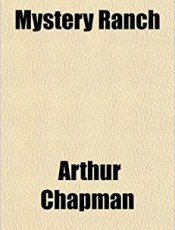sanderson's propaganda of this idea of the possible reorganisation of the world through schools came to an abrupt end in the summer of 1922. he died suddenly of heart failure in the botanical theatre of university college, london, at the end of an address to the national union of scientific workers. he had chosen as the title of the address, 'the duty and service of science in the new era,' and it was in effect a recapitulation of his most characteristic views. he attached considerable importance to the delivery and he made unusual preparations for it.
upon his desk after his death seven separate drafts, and they were all very full drafts, of this address were found. in the margins of the pages little sums have been worked out—so many pages[pg 148] at three hundred words a page, four thousand, five thousand words; a full hour's talking, and still so much to say! there are little notes framed in a sort of oxford frame of lines reminding him, for example, to 'say more of bringing scientific method into all parts of school.' on the reverse of the pages of manuscript are trial restatements. he tried back several times to a fresh beginning. there is a page headed 'the new school,' and giving three headings: the first, which he afterwards marked as second, is, 'the faculty of each member shall be developed'; the second, which became the first, is 'community service—no competition'; the third is, 'outlook—aim, more value than ability. service. all are equal. the spirit and the bride say, come. let all that will, come.'
then we find him trying over his ideas about science under a heading, 'what we claim for science.' under that are a number of interesting subheads:—
'its own value in the great discoveries.
'that its spirit is that of life, giving, changing, searching. (marginal note:—without being[pg 149] deterred by any of the results which may follow.)
'it is "natural" to the vast number of boys.
'very directly applicable to needs.
'that it has a language and a message. (marginal note:—it seeks to test, to create new standards, to fearlessly rewrite knowledge.)
'the same spirit. (? as christianity: editor.)
finally he produced a draft which was at least his eighth. this he had printed and this he may have intended to read to the meeting. but he did not do so. in the end he spoke from a fresh set of notes, which must have been at least the ninth draft. that eighth draft is given in full in the official life.
his health had not been good for some time, and he kept this lecture and his exceptional interest in it more or less secret from his wife. he spent a long and interested morning at the experimental farm at rothamsted, and in the afternoon he went to the opticians to get a new pair of spectacles and attended to other small businesses. he met a small party of us at the london [pg 150]university club in gower street to take tea before lecturing. sir richard gregory, the editor of nature, was present, major church, the secretary of the national union of scientific workers, and dr. charles singer, the historian of classical science. sanderson was evidently hot and rather tired, but he did not seem to be ill; he gossiped pleasantly with us and showed us his new spectacles. they were made of a recently discovered glass, opaque to ultra-violet rays and he betrayed the pride and interest of a boy in possessing them.
university college was not very far away, but he asked for a cab thither because he felt fagged. the audience was already assembled and he went straight on to the platform. the present writer made a few introductory remarks, and the lecture began. it is a matter of keen regret to all of us that we allowed him to stand throughout his discourse. it would have been so easy to have arranged for him to talk from a chair; the botanical theatre is not a large one and it is quite conceivable that he might be alive now, if one of us could have had that much thoughtfulness for him. we had thought of it—ten minutes after his death.
[pg 151]
but we were all so used to the quality of effort in his voice, so accustomed to its sudden fall into almost inaudible asides, that we did not mark what hung over us until the very moment of catastrophe. his sentences seemed to me a little more broken than usual; he was rather more disconnected, he was leaving rather more than usual to the intelligence of his audience, and as he talked i watched the faces before me rather anxiously to see just how much they missed of what he was trying to get over to them. he got over much more than i supposed, for i have since talked with many who were present. a fairly full shorthand note was made at the time, and on this the following rendering of the last address is based. like everything that has been printed of his here, it has been clipped and shorn, little distracting side glances have been eliminated and broken sentences filled in and rounded off.
